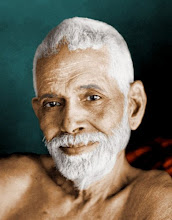To euthanize or not to euthanize? That is the question. Well, actually, not exactly.
My Tao-Tao
has been diagnosed with aggressive lymphoma that his brilliant internist says should claim his life within two weeks or so on its own. But I don't want him to suffer needlessly enroute to his inevitable demise. Yet I also want to keep him with us and to hold him on my lap, as I'm doing this very moment, and stroke him, and tell him I love him for as long as I can before taking him on his final trip to the vet.
And right now, possibly due in part to administering to him antibiotic, appetite-stimulant (Mirtazipine), anti-inflammatory steroid prednisolone, and, via syringe into the mouth, prescription cat food with extra nutritional density, he seems to be doing much better than he was a few days ago. His respiratory infection seems to be pretty much gone, although the prednisolone may compromise his immune system enough to bring his infection back in spades. And he's eating, drinking, moving around, and vocalizing almost like his old, healthy self, although the Mirtazipine may well be magnifying his vitality.
This made it impossible for me to follow though with my original plan to have him put down yesterday or today. And, yet, I know he's not and never will be back to his old, normal self. I know his seeming "recovery" is superficial at best and exceedingly temporary. And, for all I know, he's suffering in ways I can't perceive.
So, am I being cruelly selfish in postponing the inevitable another day or several days? Tao-Tao is the closest thing to a human child I will ever have. Were he human, he would no doubt be kept alive, with palliative treatment, until he passed away on his own. So, why is it that we readily resort to euthanasia for our animal "children"? If we do it for them, in order to refrain from hopelessly prolonging their suffering, why don't we do it for humans? If our human children's imminent death is inevitable, is it really doing them any favor to grant them an extra few hours or days of life the memory of which will presumably be annihilated after they die?
But then one could draw out that line of reasoning
to argue that bringing any new animal or human life into the world when we have the power to prevent it is an act of inexcusable selfishness since a new creature is likely to experience more suffering than its opposite and to die and to forget the good times it experienced. At the very least, this idea could be marshaled to argue that people, not to mention animals, should be euthanized at the first sign of distress caused by a hopelessly terminal illness, especially if they ask to be or lack the ability to express their wishes.
I can't confidently answer these questions, and I'm not going to tax myself trying to. I'm just going to continue enjoying my beloved Tao-Tao's company for as long as he seems to be enjoying mine, and when he no longer does, or his suffering appears, to my best judgment, to exceed his pleasure, it'll be time to do what it will break my heart to do.

